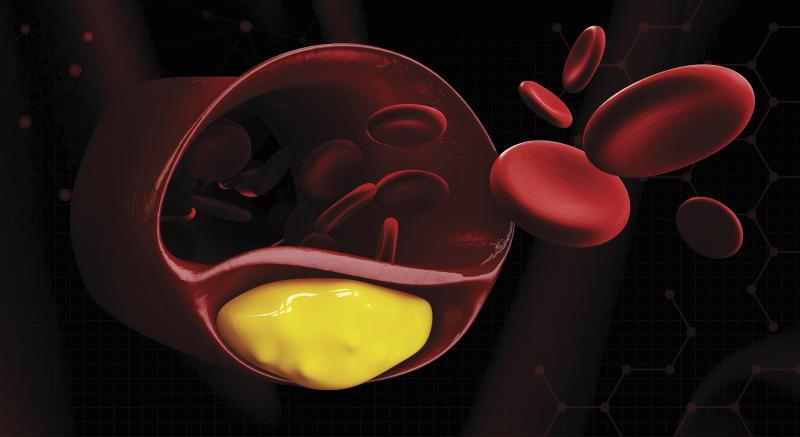
Evolocumab therapy demonstrates long-term efficacy, safety and tolerability in patients with homozygous (HoFH) and severe heterozygous familial hypercholesterolaemia (HeFH), reducing plasma low-density lipoprotein cholesterol (LDL-C) as well as the need for LDL apheresis, a study has shown.
“Evolocumab was well tolerated and effectively reduced plasma LDL-C levels in patients with HoFH and severe HeFH over a median of 4.1 years,” the researchers said.
This open-label, single-arm study included 300 patients with HoFH or severe HeFH aged ≥12 years and on stable lipid-lowering therapy. Patients initiated subcutaneous evolocumab 420 mg monthly or 420 mg every 2 weeks if on lipoprotein apheresis. After 12 weeks, those not on apheresis could be up-titrated to 420 mg every 2 weeks.
The incidence of treatment-emergent adverse events (AEs) was the primary outcome. Secondary outcomes included changes in LDL-C and other lipids.
Patients were treated with evolocumab for a median of 4.1 years, among which 89.3 percent had AEs. The most common AEs were nasopharyngitis, influenza, upper respiratory tract infection and headache. [J Am Coll Cardiol 2020;75:565-574]
This AE profile was consistent with that of previous evolocumab trials, including FOURIER*, wherein the study drug was evaluated in patients with clinically evident atherosclerotic cardiovascular disease. No neutralizing antibodies to evolocumab were seen during the extended follow-up period. [N Engl J Med 2017;376:1713-1722]
From baseline to week 12, the mean changes in LDL-C were –21.2 percent (–59.8 mg/dl) and –54.9 percent (–104.4 mg/dl) in patients with HoFH and severe HeFH, respectively. These changes were sustained over time. In 48 patients with HoFH who were up-titrated, mean change in LDL-C improved from –19.6 percent at week 12 to –29.7 percent after 12 weeks of 420 mg every 2 weeks.
The adjudicated cardiovascular event rate stood at 2.7 percent per year, which was significantly lower than expected given the high risk of these patients and the event rates observed in other studies. [Cardiovasc Drugs Ther 2016;30:427-431]
Moreover, 16 (26 percent) of 61 patients receiving apheresis, most with HeFH, discontinued this procedure. “This may be due in part to the additional LDL-C reduction by evolocumab treatment and is consistent with findings for evolocumab and alirocumab in patients with HeFH,” the researchers said. [J Clin Lipidol 2019;13:901-909.e3; Eur Heart J 2016;37:3588-3595]
The current study also provides longer term data in 14 adolescent patients with HoFH treated with evolocumab. A specific paediatric trial in patients aged 10–17 years with HeFH in the HAUSER-RCT will supplement this research, according to the researchers. [J Clin Lipidol 2018;12:1199-1207]
“Further studies in larger cohorts are needed to establish the incremental efficacy of sustained LDL-C lowering with evolocumab for prevention of CV events in patients with severe FH,” they added.
Proprotein convertase subtilisin/kexin type 9 inhibitor therapy is a treatment option for FH patients who are unable to reach their LDL-C goals.